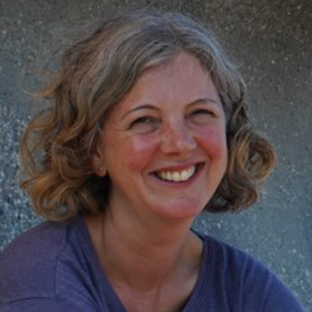We both work on projects that encourage young people to lead social action - something done for the benefit of the community.
We believe youth-led social action can benefit both the community and the young people taking part.
But if young people are in the driving seat, where does that leave teachers and other school staff? What role do they have in youth-led social action programmes like RSA4 or Young Citizens’ Make a Difference Challenge?
We have identified 5 key ways for educators to support youth-led social action:
- Providing opportunities to participate
- Supporting character development with ground rules
- Safeguarding physical, mental and emotional wellbeing
- Providing structure to make cross-curricular links
- Giving pupils agency
Providing opportunities to participate, starting in primary schools
Perhaps the most important role for educators is to provide young people with opportunities to take part in high-quality, meaningful social action projects - and start at primary school.
The Jubilee Centre found that those who participated in social action before the age of ten were more than twice as likely to form a ‘habit of service’ than if they start at 16-18 years of age.
A ‘habit of service’ is ‘a commitment to youth social action throughout a young person’s life’. The same research found that young people with a ‘habit’ were more likely to agree they’d ‘had the chance to lead or encourage others through youth-led service’.
So, we know that being youth-led is an important part of planting a seed for a commitment to social action and starting with some of our youngest citizens is key.
In our experience, even very young primary school pupils are capable of leading social action projects with the right support.
Supporting character development with ground rules
A recent survey by the CBI found that 40% of employers felt school leavers were not ready for the workplace. It suggested that schools need to be developing character traits, such as the ability to reflect on areas for improvement and a compassionate and inclusive outlook, which are seen by employers as more important than qualifications.
Evidence shows that youth-led social action projects help develop these important skills and can have a positive impact on grit and problem-solving.
Educators can support the development of these character attributes by setting clear expectations at the start of a social action project for how young people should be working together, and by making their own role explicit to the group.
One way of doing this is to co-create, and regularly revisit, Ground Rules or a ‘Community Code’ for your social action project.
These rules should cover enabling all ideas to be heard, taking decisions democratically and ensuring a respectful and supportive classroom climate.
Safeguarding the physical, mental and emotional wellbeing of young people
Social action projects aim to have a positive impact on some of the most challenging social and environmental issues in our communities.
Some, if not all, of these issues can be sensitive or controversial, and they may affect young people directly, so it’s the primary role of the educator to keep young people safe as they navigate their way through their project.
Often, young people are already aware of these issues and social action gives them the opportunities to explore them with a focus on creating a socially impactful outcome.
Of course, educators have a duty to ensure they mitigate any physical risks young people may face, for example through off-site visits or contact with members of the wider community. In social action, educators should also be managing potential risks to pupil’s mental and emotional wellbeing from exposure to any potentially upsetting information.
Ground Rules can also help here, by ensuring young people feel safe and supported when sharing their ideas, feelings and experiences.
Providing structure to make cross-curricular links
Even social action projects that are youth-led, still need adult support and guidance.
Another way in which educators can support young people is by providing a project structure or template plan to follow.
The younger the children, the more support they are likely to require, but the idea is not to provide all the answers but to ask key questions to guide the next steps.
Young Citizens’ Make a Difference Challenge uses the Belle Wallace TASC (Thinking Actively in a Social Context) Wheel to ‘scaffold’ children’s learning but there are other project planning processes you could follow.
Social action also provides educators with creative opportunities to link cross-curriculum subjects to real world learning.
A clear structure allows teachers to add subject knowledge to help the social action project, and use work done as part of the social action to continue subject learning. For example, some of the most successful projects we’ve seen have made use of teacher knowledge and expertise to develop students’ literacy through writing persuasive letters to MPs or improving speaking skills through respectful debates.
Giving pupils agency
Agency is about how involved young people are in projects.
Hart’s ‘Ladder of Youth Participation’can be a useful tool for thinking about participation and agency.
Each rung represents different levels of participation.
Bottom is ‘manipulation’ where young people are asked what they think but have little autonomy over how adults interpret this.
Top is ‘youth-initiated - share decisions with adult’ where young people are empowered and supported by adults without them taking over.
Involving young people in tokenistic ways will not be as impactful as fully inviting them to shape and lead social action for themselves.
Consider where your school’s culture sits on the ladder. What platforms are there currently and where are their opportunities to involve pupils in decision-making and amplify youth voice on issues that matter to them?
Educators are crucial for successful youth-led social action
When promoting youth-led social action, we have both had lots of questions about how teachers fit in.
But it’s not just teachers. All members of staff, including pastoral roles and senior leaders in a school community, play an important role in championing youth voice and embedding a culture of youth social action.
In fact, in the most successful projects we see that all educators have an absolutely crucial role to play in allowing students to help themselves and help their community.
We hope more educators can see the value in supporting pupils to lead.
RSA4 is joint project between RSA and RSA Academies working in 10 West Midlands primary schools to investigate social action in a primary setting, particularly with Year 4 pupils.
Young Citizens’ Make a Difference Challenge is a primary social action project that works with schools across the UK.
Young Citizens’ Ruth Le Breton delivered the teacher training element of the RSA4 project and their CEO, Tom Franklin, sits on the RSA4 project Advisory Board.
RSA4 and Young Citizens’ online ‘Make a Difference Challenge’ are both supported by the Pears Foundation #iwill Fund (made possible with joint investment from Pears Foundation, The National Lottery Community Fund and the Department for Digital, Culture, Media and Sport).
The #iwill Fund supports the aims of the #iwill campaign – to make involvement in social action a part of life for young people, by recognising the benefit for both young people and their communities.


Be the first to write a comment
Comments
Please login to post a comment or reply
Don't have an account? Click here to register.